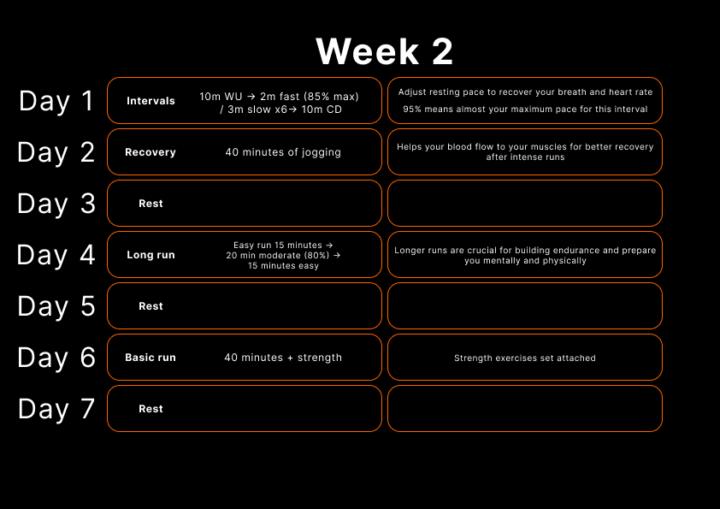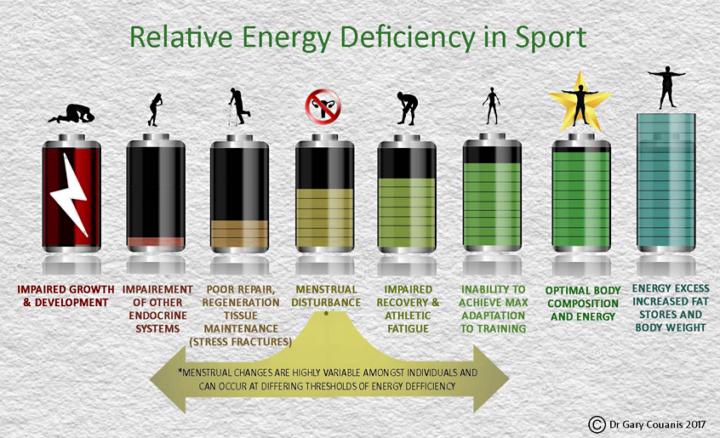Activity
Mon
Wed
Fri
Sun
Mar
Apr
May
Jun
Jul
Aug
Sep
Oct
Nov
Dec
Jan
Feb
What is this?
Less
More
Memberships
The Art Of Self-Connection
107 members • Free
Free Skool Course
43.5k members • Free
Atem. Energie. Balance.
19 members • Free
Just Another Moment (JAM)
130 members • Free
Better Runner
44 members • Free
The Storyteller's Path
301 members • Free
Fucketlist Life
5.6k members • Free
NeveReady Run Club
535 members • Free
The MOVEment
103 members • Free
4 contributions to Better Runner
Getting momentum back
During a long run a couple of weeks ago I quit mid run. I was going too slow and wasn’t going to have time to finish before my next commitment. I couldn’t pinpoint what was wrong, why I couldn’t get into this run. By the next day, my back was in a lot of pain. The idea of running sounded so painful. So I didn’t. And I didn’t the next day either. I went to the chiropractor twice for the pain. Today I went to a massage therapist. She told me I could run tomorrow. But now my brain is being lazy. It’s like I forgot how to run again. Sorry for the long story, but does that ever happen to you? You just forget what it’s like to run?
2 likes • Feb '25
Our brain is evolutionarily programmed to save energy—a necessity dating back to the Stone Age. Back then, food was scarce, and physical exertion had to be reserved for survival tasks like hunting and escaping danger. As a result, the brain developed a mechanism to minimize unnecessary energy use. Scientific studies confirm this: although the brain makes up only 2% of body mass, it consumes about 20% of total energy. To manage this, it prioritizes efficiency—any skill or habit not regularly used is marked as "less important" and weakened. This is why, after a break from running, it feels like you’ve "forgotten" how to do it. The neural pathways aren’t gone, just less active. But this process is reversible. Once you start running again, your brain recognizes its relevance and strengthens those connections. This same mechanism helped our ancestors adapt to changing conditions—and today, it helps us get back into a routine after time off.
Running Challenge Week 2
🎖️Congratulations to all of you who have taken the first steps towards consistent and smart running! There are not many of us, but I am sure that those who have started today will achieve their running goals! The hardest thing is to develop consistency and the first step is already behind us! If you didn't have time, start later - you can still join from the week 1 - I will help you to synchronise your days so that everyone moves more or less together. ☺️ 👇Here is the plan for you 👇 DAY 1 START : TODAY This week intensity and volume is a bit higher ! Strength Set stays the same 👌 Strength exercises for day 6 https://www.skool.com/become-better-runner-4238/no-equipment-strong-legs-for-runners-prepost-run-set?p=ef3ce2fc

🔥 5K PB Challenge
Hey everyone! This challenge will help anyone who wants to improve: 👉Running pace 👉Understand the basics of training 👉Have a goal and keep consistency I could start with a lot of theory about how to run, but instead let's get straight into the practice.✊ You will learn as you go. Next week goal: ✅Run 5km at maximum effort to fix your result ✅Post it here Then, for the next 4 weeks, I will give you a plan to follow - running 4 times a week. (you can do more) After 4 weeks everyone who joins the challenge will run 5k again to see the results. No winners at this challenge but you will learn ALOT
Poll
10 members have voted

Understanding RED-S 🟥 (Relative Energy Deficiency in Sport)
I first heard about RED-S this summer. While studying to become a running coach, a classmate of mine, who specializes in women’s triathlon, shared an article on the topic with me. At the time, I was in the midst of an exciting phase—training in the mountains and participating in various races. However, after a while, I began to feel increasingly tired, and even my easy runs started to feel like a struggle. After reading the article, it became clear: I was experiencing RED-S. 😔 Now, being knowledgeable about this has changed my understanding of training, nutrition, and recovery, while also raising awareness about this very important topic. It’s estimated that over 40% of professional athletes suffer from RED-S, and the number may be even HIGHER among amateur athletes and fitness enthusiasts. RED-S occurs when athletes consistently burn more energy through physical activity than they consume through their diet. Over time, this energy deficit can lead to a wide range of symptoms, including hormonal imbalances, reproductive issues, insomnia, fatigue, weakened bones, injuries, and a higher risk of anxiety and depression. Many triathletes, runners, and climbers aim to stay lean and maintain their “competition weight” year-round. While weight is important in sports that rely on power-to-weight ratio, insufficient calorie intake to match training demands can lead to fat retention and muscle loss. Irregular or inadequate eating can cause the body to store fat, resulting in RED-S. However, the reasons for reduced calorie intake can be both conscious and unconscious. Statistics on RED-S in Sports - Prevalence: Studies show that 40% of female athletes and up to 25% of male athletes in endurance sports experience RED-S or low energy availability. - High-Risk Sports: Endurance sports like running, cycling, swimming, and rowing have the highest prevalence. For example: - Runners: Up to 50% of elite female runners show signs of RED-S. - Cyclists: Approximately 20-30% of male and female cyclists report symptoms. - Dancers and Gymnasts: Also at high risk due to aesthetic and weight-focused pressures.

2 likes • Jan '25
Thank you for this very informative post! My main issue is that I often forget to eat and rarely feel hungry, especially during stressful periods at work. I also feel like I can't consume as many calories as I actually need, especially when training. I would really appreciate any tips on how to improve this!
1-4 of 4
@anke-obersteiner-7929
I'm happy to be on this journey with u guys.
I love to meet likeminded people all over the World. Let's get offline together ❤️ @neveready100 on IG
Active 16d ago
Joined Jan 23, 2025
Carinthia, Austria
Powered by



